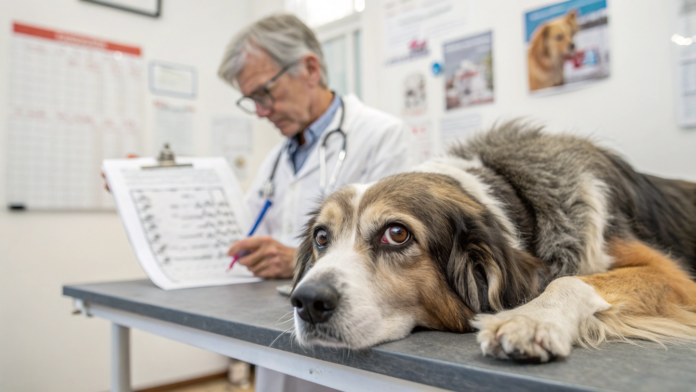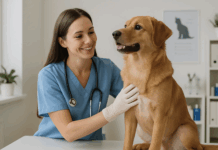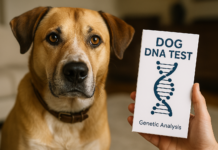As dogs age, their bodies undergo changes that make them more susceptible to health issues. Senior dogs (typically aged 7+ years, depending on breed) require specialized care to maintain their quality of life.
This guide explores the most common health problems in aging dogs, actionable prevention strategies, recognizable symptoms, and effective care tips. By understanding these factors, pet owners can proactively support their furry companions through their golden years.
Understanding Senior Dog Health
Aging in dogs brings gradual declines in organ function, mobility, and immunity. Smaller breeds often live longer than larger ones, but all senior dogs face similar risks. Regular veterinary check-ups, tailored nutrition, and lifestyle adjustments are critical to managing age-related conditions.
1. Arthritis (Osteoarthritis)
What It Is: Degenerative joint disease causing pain, stiffness, and reduced mobility.
Prevention:
- Maintain a healthy weight to reduce joint stress.
- Provide joint supplements (e.g., glucosamine, omega-3s) early.
- Encourage low-impact exercise like swimming.
Symptoms: - Limping, reluctance to climb stairs, or difficulty standing.
- Licking or chewing at painful joints.
Care: - Prescription anti-inflammatory medications.
- Orthopedic beds and ramps for easier movement.
- Physical therapy or acupuncture.
2. Dental Disease
What It Is: Plaque buildup leading to gum inflammation, tooth loss, and systemic infections.
Prevention:
- Daily tooth brushing with dog-safe toothpaste.
- Dental chews and annual professional cleanings.
Symptoms: - Bad breath, drooling, or bleeding gums.
- Difficulty eating or dropping food.
Care: - Antibiotics for infections.
- Tooth extractions if necessary.
- Soft food diets during recovery.
3. Obesity
What It Is: Excess weight exacerbating joint, heart, and metabolic issues.
Prevention:
- Measure meals and avoid table scraps.
- Adjust calorie intake based on activity level.
Symptoms: - Difficulty feeling ribs under fat layers.
- Lethargy or shortness of breath.
Care: - Transition to high-protein, low-calorie senior dog food.
- Increase exercise gradually.
4. Kidney Disease
What It Is: Reduced kidney function leading to toxin buildup.
Prevention:
- Ensure constant access to fresh water.
- Avoid high-sodium treats.
Symptoms: - Increased thirst, frequent urination, or vomiting.
- Weight loss and dull coat.
Care: - Prescription kidney-support diets.
- Subcutaneous fluids for hydration.
5. Heart Disease
What It Is: Conditions like congestive heart failure impairing circulation.
Prevention:
- Annual vet exams to detect murmurs early.
- Balanced diet with taurine and antioxidants.
Symptoms: - Coughing, fatigue, or fainting.
- Swollen abdomen or bluish gums.
Care: - Medications like diuretics or ACE inhibitors.
- Reduced sodium intake.
6. Cognitive Dysfunction Syndrome (CDS)
What It Is: Canine dementia causing disorientation and behavior changes.
Prevention:
- Mental stimulation via puzzles or training.
- Antioxidant-rich diets.
Symptoms: - Pacing, staring at walls, or disrupted sleep.
- House soiling or reduced interaction.
Care: - Prescription drugs like selegiline.
- Maintain consistent routines.
7. Vision and Hearing Loss
What It Is: Age-related sensory decline.
Prevention:
- Protect eyes from trauma with dog goggles.
- Avoid loud noises near ears.
Symptoms: - Bumping into objects or unresponsive to calls.
- Cloudy eyes (cataracts).
Care: - Use verbal cues for hearing-impaired dogs.
- Keep furniture arrangement consistent.
8. Cancer
What It Is: Uncontrolled cell growth; common in older dogs.
Prevention:
- Spay/neuter to reduce reproductive cancers.
- Limit exposure to toxins like pesticides.
Symptoms: - Lumps, sores that won’t heal, or sudden weight loss.
- Lethargy or difficulty breathing.
Care: - Chemotherapy, radiation, or surgery.
- Palliative care for comfort.
General Care Tips for Senior Dogs
- Diet: Switch to senior-formulated food with easily digestible proteins and joint supplements.
- Exercise: Moderate walks to maintain muscle tone without overexertion.
- Vet Visits: Biannual check-ups for bloodwork and early disease detection.
- Comfort: Provide non-slip mats, raised bowls, and warmth.
- Mental Health: Engage with interactive toys to combat cognitive decline.
FAQs About Senior Dog Health
Q1: At what age is a dog considered a senior?
A: Small breeds (7+ years), medium breeds (6+), and large breeds (5+).
Q2: What are the first signs of aging in dogs?
A: Graying muzzle, reduced energy, and slower movements.
Q3: How can I improve my senior dog’s quality of life?
A: Prioritize pain management, mental engagement, and a comfortable environment.
Q4: When should I take my senior dog to the vet?
A: Immediately if they refuse food, show labored breathing, or collapse.
Q5: Are senior dog health issues expensive to treat?
A: Costs vary, but pet insurance or wellness plans can help manage expenses.
References
- American Veterinary Medical Association (AVMA) – Senior Pet Care
- American Animal Hospital Association (AAHA) – Canine Life Stage Guidelines
- Cummings School of Veterinary Medicine at Tufts University – Dog Aging Project
By addressing these health issues proactively, you can ensure your senior dog enjoys a comfortable, happy life. Always consult your veterinarian for personalized advice tailored to your pet’s needs.























